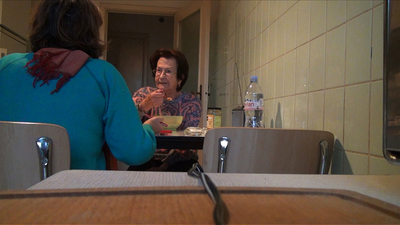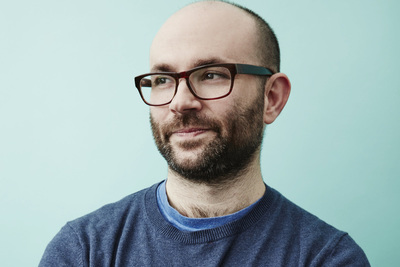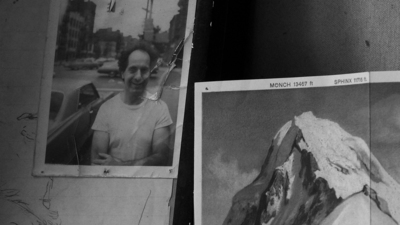
BY MATTHEW ENG |
Getting Into Character: Kate Lyn Sheil Gives One of 2016’s Most Daring Performances in KATE PLAYS CHRISTINE
You've never seen a performance quite like this.
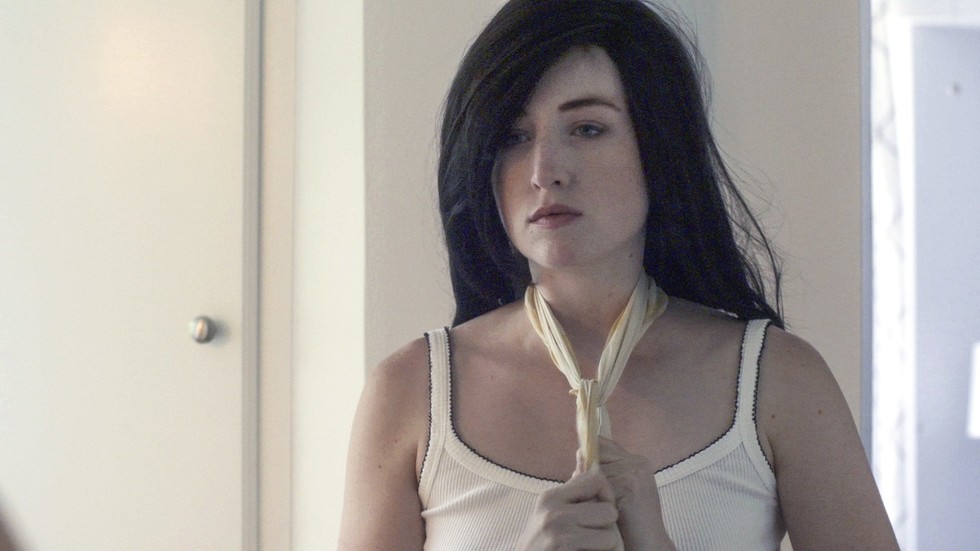
Contrary to what Jared Leto might have you believe, truly brave acting doesn’t at all entail pig carcasses, used condoms, or any of the other narcissistic, faux-Method theatrics that the Academy Award winner perpetrated during Suicide Squad’s fraught production.
If you’re searching this year for a performance of raw and rich boldness, look no further than Kate Lyn Sheil’s performance as both the infamous TV journalist Christine Chubbuck and herself in Kate Plays Christine, Robert Greene’s surprising, mind-boggling synthesis of twisty performative manipulation and bare-bones documentary realism that revolves entirely around this admirably prolific performer.
Sheil is an actress of moth-like presence, capable of blithe charm and unnerving intensity. In an indie environment where every festival brings along a fresh-faced actress poised to take a turn wearing Parker Posey’s It Girl crown, Sheil is nothing if not a mainstay, a not-quite-household name with an inspiring pitch-in spirit who remains best-known for go-for-broke feats in no-budget and often female-helmed dramas like Green and Sun Don’t Shine, as well as small but impressionistic supporting turns on series like House of Cards and The Girlfriend Experience.

In Kate Plays Christine, Sheil gamely approaches the near-unprecedented challenge of fully documenting an actor’s process, patiently — and then not-so-patiently — building a character in spite of a crucial lack of information about Chubbuck (who killed herself on-air during a 1974 daytime broadcast) and every actor’s greatest personal hurdle: insecurity. Sheil largely refuses to hide even the most unflattering episodes of her experience and Greene captures it all. We catch her initial jitters over having to tap into a severe, real-life figure with a cultish following but negligible significance within the public consciousness, even amongst the residents of the same Florida town where she met her end. We see Sheil flub lines, ruin takes, lose her cool, argue with her director, and weave in and out of character. As the production begins to shred from behind-the-scenes and Sheil’s grip on the role continues to tighten and loosen, there are even some moments where the actress appears downright miscast.
This might all seem like a dubious exercise in recording an actor’s flailing journey were it not for Sheil’s moments of triumph, in which the actress’ distinguishing talents emit perturbing flashes of a real woman’s exasperated yearning from behind an often garish facade. Kate Plays Christine gets a great deal of its power from the considerably credible portrayal of its committed leading lady, but its most lasting impression comes from the eerily sympathetic bond that slowly emerges between Sheil and the unknowable, off-screen persona with whom she shares the film’s indelibly declarative title, a woman who is at once stranger and mirror.
Here Sheil opens up about the early roots of her acting career, the “s”-word she hates, and the unique task of creating drama both on and off-camera.
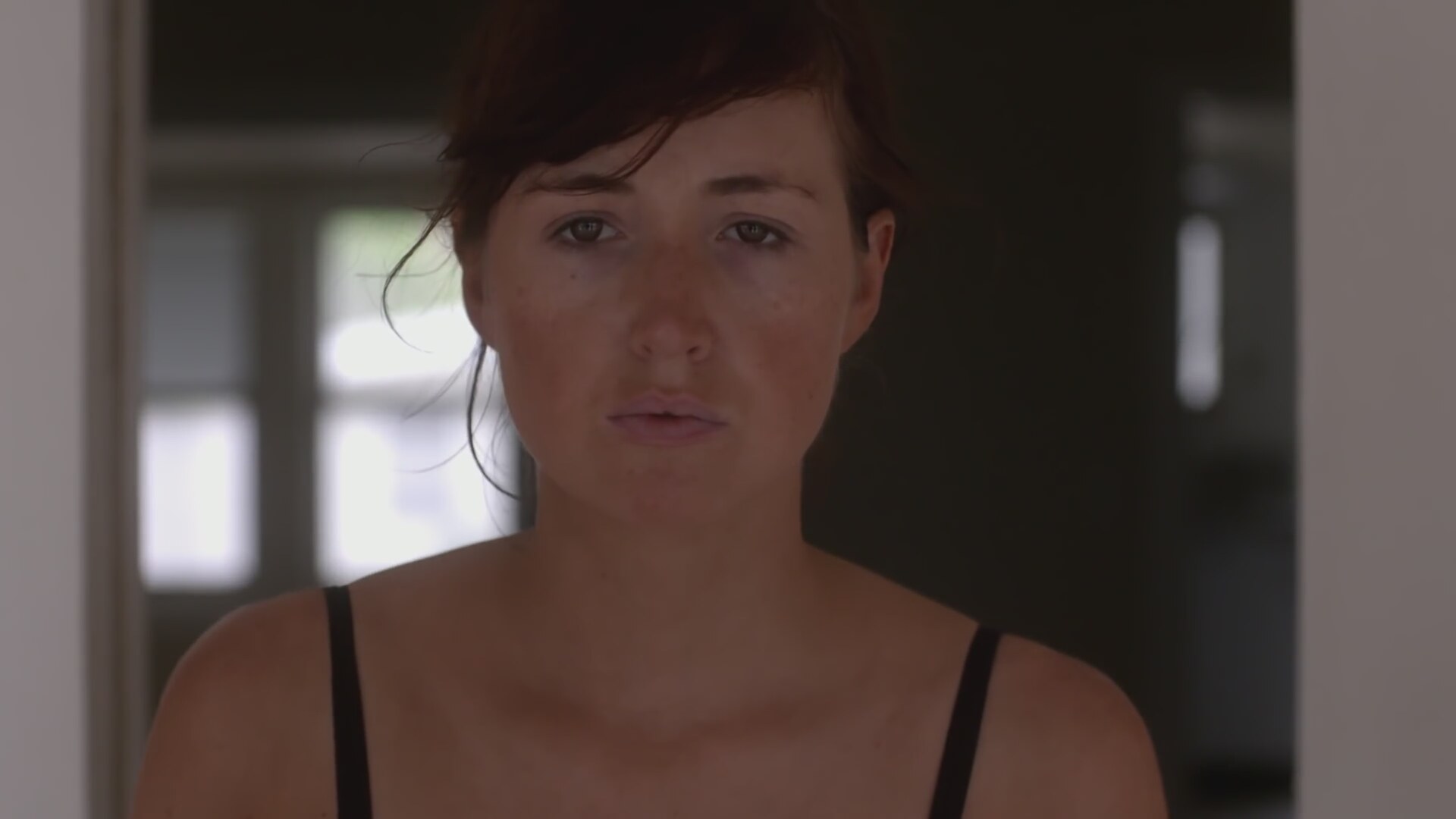
What was the original pitch you received for Kate Plays Christine?
I heard Robert talk before, in the past, about wanting to make a movie about Christine Chubbuck but not really knowing how and not really being able to figure out what felt right to him, in terms of trying to approach her story. But then when he came to me and said he wanted to make Kate Plays Christine, I could tell he had figured out the story. There was nothing down on paper — or there may have been, but I didn’t see anything. The pitch came as a pretty full package. [Robert] told me what he wanted to name the movie and that it would be about me preparing to play the role of this woman, Christine Chubbuck, in basically a fictional narrative film which was never to exist. It came pretty fully-realized but then obviously a lot was realized when we were on the ground in Florida.
You say at the beginning of the film that you always inherently knew you were going to be an actress. What informed this awareness for you?
I mean, I don’t want to make it sound like some life or death situation. I did a play in the fourth grade. I got some positive feedback from a teacher I liked. And I just kept doing it, I guess. [Laughs] I did other things when I was younger, dancing and stuff. But when I got to high school, that was my main activity. I was never acting professionally. I did high school plays, I did musicals. And then that led into college.
I don’t know how this information got disseminated but a lot of people that I talk to who went to NYU have this idea that, I don’t know, it’s like the most incredible acting school in the whole world. Which potentially maybe it is. I don’t know… I talked to all these people in my intro [classes] and they were like, “Oh my god, when I got in, I couldn’t believe it!” [Laughs] But somehow they had convinced us — there was some sort of manipulation going on — that, like, We’re not worthy, we have to go! And when I got in there, I was really excited. And I begged my parents to help me go there.
But yeah, it was what I wanted to do. I’ve never been good at planning anything ever, in my entire life. So I’ve kind of taken the opportunities as they come but I’ve never been particularly calculating about making, you know, a very specific plan about how I was going to become an actor.
Did you have any formative acting influences growing up? Who are your acting influences today?
Growing up, I had a bunch of really normal influences and movies that I liked, like a lot of people my age. Like, you know, Dirty Dancing and Grease. [Laughs] But then, also, my dad was really into watching TCM and Old Hollywood movies. I spent a lot of time watching those and I really liked all of them. It was one of my favorite things to do, watching old movies with my dad. So maybe that, but I wouldn’t say I was influenced by, like, Carole Lombard when I was a kid. [Laughs] But now I have a myriad of [influences]. I’m blown away by actors constantly.
I remember the first thing I auditioned for after school was a short film called Knife Point. I got it and I was really excited that I got it. And I remember specifically watching Two-Lane Blacktop over and over again, like rewinding Laurie Bird’s part because I thought she was so fabulous in front of a camera and casual, [which] was really, really cool. So I just copied her.
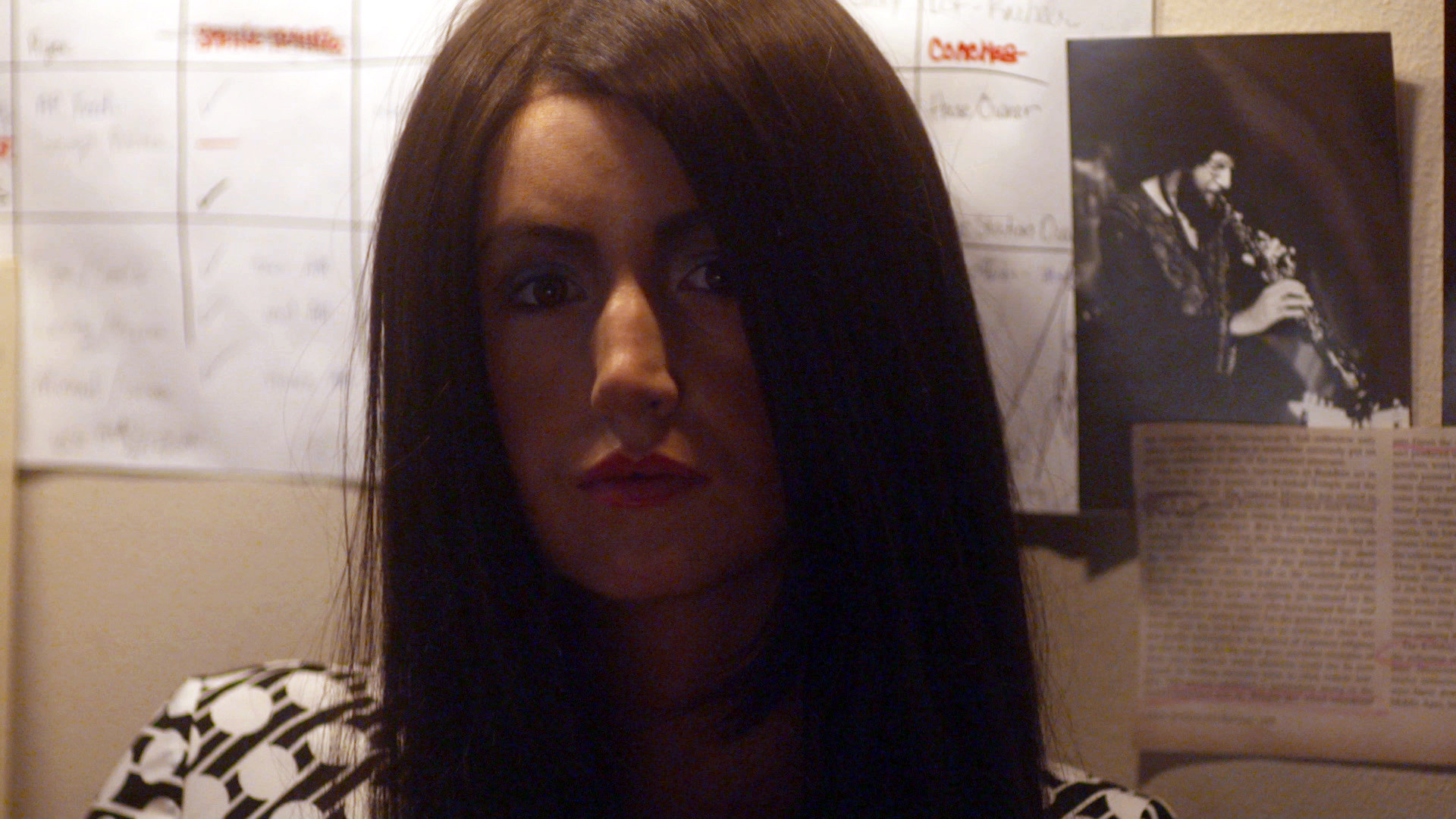
At the beginning of the film, you also say, “If a performance of mine is called ‘subtle’ one more time, I think I might lose my mind.” How much did creative frustration with your work and its reception factor into your decision to join this project?
Well, I mean, I joined the project because Robert asked me to and we’ve known each other for a decade and he’s a friend. But I also joined the project because I was interested in Christine Chubbuck. And I think Robert’s a very talented filmmaker and [cinematographer] Sean [Price] Williams is a very close friend and an incredibly talented filmmaker. So I thought there was a chance that we could make a complicated movie about a complicated woman. And that is attractive to me. And also I [wanted] to do another movie where I was tasked with improvising and creating some of the content. I felt good about doing that with two very old friends who I trusted.
Was I feeling creatively frustrated? Yes and no. I feel lucky to do what I get to do. And I was proud of a lot of my work. But yeah, I still feel creatively frustrated. I did at the time and had in the past and do now and so will in the future. It’s an ongoing conversation with myself, what it is I want to do and what is the point of what I’m doing.
In terms of that “subtle” line… Yeah, I definitely do get bummed-out when that word is thrown around so much. I do think it’s kind of an empty descriptor… No offense to anyone who has ever used that word. It’s whatever. It’s cool to be written about at all, whether it’s negative attention or positive. It means somebody’s paying attention to your work and that’s lucky and cool and whatever. But I think “subtle” is kind of a nothing word. And it gets used over and over again. The word “ubiquitous” was being thrown around a lot. And it still is. “The ubiquitous indie actress” or something. I’ve been in, like, two movies over the past year, what are [they] talking about? But, again, I’m lucky to be written about. And who cares?
[The “subtle” line] was also kind of a joke because I knew I was about to go into a project where I was, arguably, mining some fuller performative territory than I maybe had in some of the films where I may have been described as “subtle.” [Laughs] The joke is not lost on me that I’m mad about being described as “subtle” when I’m about to launch into a movie that is, you know, so much about hiding certain intentions. I was about to do something pretty subtle, I guess. [Laughs] It wasn’t unintentional and it’s not lost on me, but people do ask about that line.
Did you anticipate any of the complications that ultimately ensued during the shoot? What were your fears going into the project?
I had a lot of fears going into the project. I had two primary tracts of fear. One, Christine Chubbuck is a real woman who took her life, in the grand scheme of things, not very long ago. And I had reservations from the start about even the idea of exploring her story because there are real people and real feelings involved. My other reservation is that if we didn’t plan very carefully or check one another very stringently and be very calculating about the entire project… Like, if we just walked away with footage of me in Florida and let the movie — and Robert would have never let this happen or let it be released in this form. But if it ever sort of became just cool shots of me hanging out at the beach — [Laughs] — on summer vacation, that would be the most repulsive idea in the world to me. So what that meant was that I was potentially diving into another movie — and this one calling itself a documentary — where I was saying, “This is the real me,” and portraying myself as a much more dour and intense person than I am and that was a frightening concept to me. And I had to trust Robert, which makes the film as dynamic as possible.
In terms of the complications, I was the one creating [them] for the most part. I’m not a journalist, obviously, and the one thing that came up was that I don’t feel comfortable interviewing people. They start to feel uncomfortable and I really want to stop it because I don’t like uncomfortable situations. And so then Robert would step in and help me out with the interviews. But in terms of getting lost in the character, that was the idea from the beginning, that I was acting. The complications didn’t really take me by surprise because they were outlined... Or it was drama that I created.
Kate Plays Christine opens in limited release on Wednesday, August 24th in select theaters, including IFC Center.
